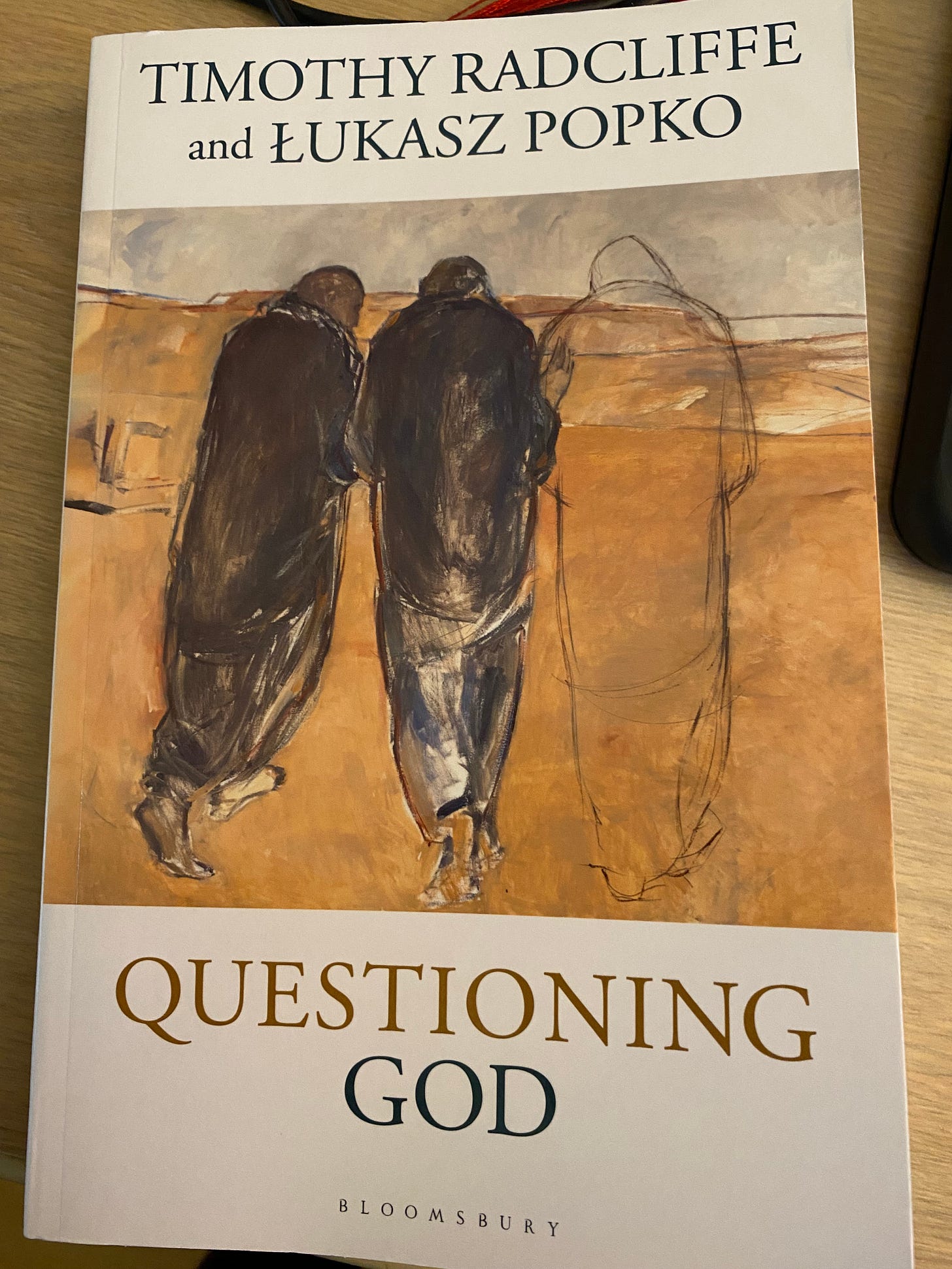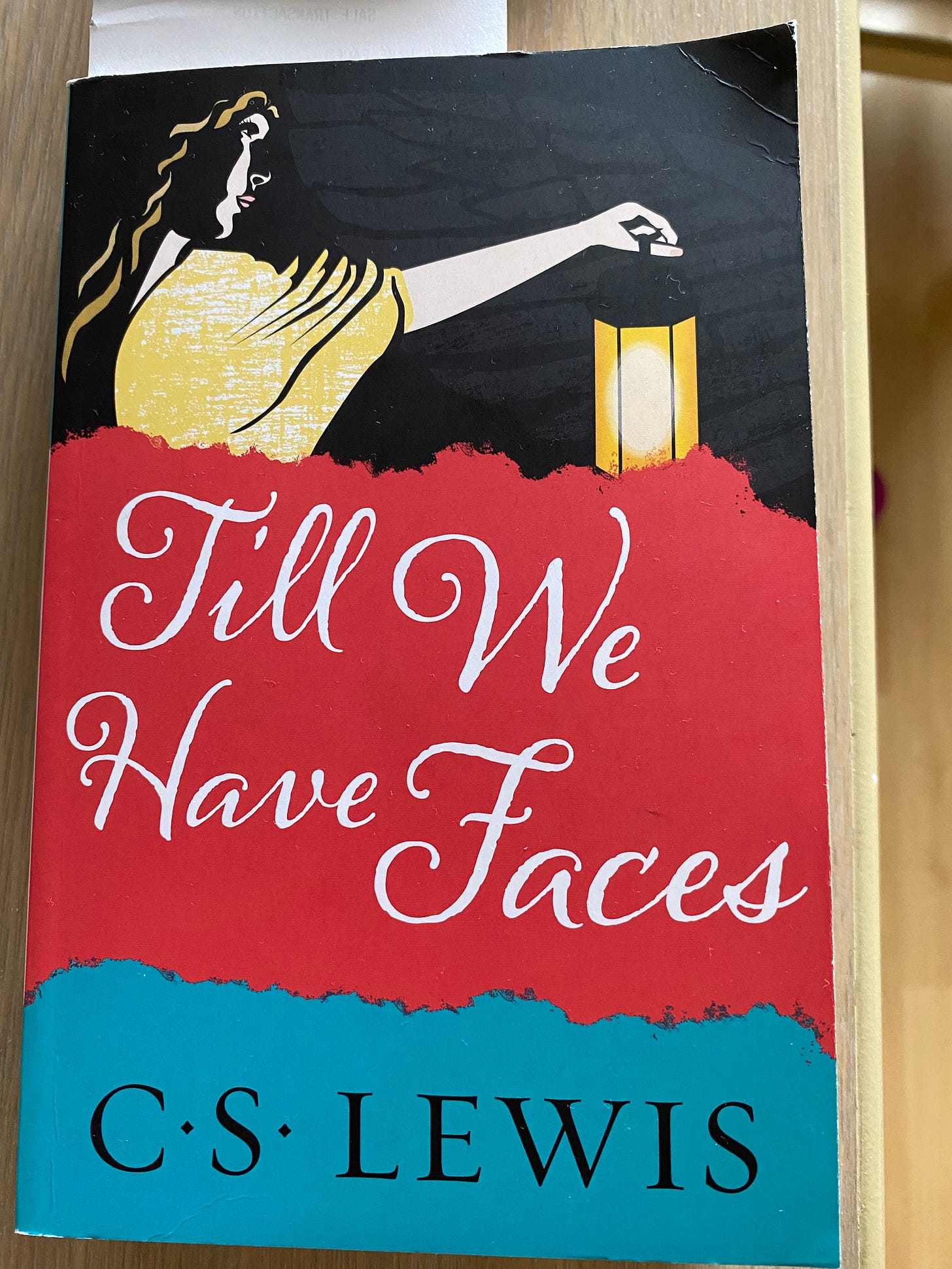Looting for Ideas 07/03/2025
Returning to where you encounter Jesus, CS Lewis is great, Wisdom is a skill
The Big Idea
Return to where you first encountered Jesus
He lost Jesus or he felt lost himself, so he returns to the place where he met him first: to the shores of the Sea of Galilee. This is our spontaneous reaction when we are lost in a strange city: we seek for a known place…When we long for someone, unknowingly even, we seek out the place where we met him or her. Well, in the case of Peter, it proved to be a right intuition. (Questioning God, p 175-176)
My interpretation of John 21 has always been negative. Peter is at a loss, overwhelmed, unsure of what to do, and decides to return to his old life as a fisherman. Jesus has other plans and intervenes and calls Peter out of the sea once again. One can never return to “the old ways” once he or she has had a real encounter with Jesus Christ.
Fr Lukasz Popko gives a positive interpretation that I like much better. Peter is at a loss, overwhelmed, unsure of what to do, and so he goes back to where he first encountered Jesus. He is seeking Jesus, not trying to pretend the relationship never happened. As Fr Lukasz notes, Peter’s intuition was correct and he does meet Jesus.
The beauty of the Word of God is that it simultaneously conveys many truths, sometimes apparently opposite or contradictory. Both the negative and the positive account have something important to teach. For Lent this year, I will spend more time with the positive interpretation. I think imitating Peter, and returning to where I first felt the call of Jesus, is a good Lenten practice.
I guess if I am to follow my own advice I need to reread Augustine’s Confessions.
The Other Ideas
CS Lewis is a great writer
“What?” said the King. (And this is the greatest shame I have to tell of in my whole life.) His face cleared. He was only a hair’s breadth from smiling. I had thought that he had seen the arrow pointed at Pysyche all along, had been afraid for her, fighting for her. He had not thought of her at all, nor of any of us. Yet I am credibly told that he was a brave enough man in a fight.
Till We Have Faces, CS Lewis, p 63
I break no new ground declaring CS Lewis a great and insightful writer. Something about this specific quote has lodged itself in my mind, and I keep coming back to it again and again. Fortune has favored me thus far, and I have never experienced a great betrayal. Something about this quote made the experience vivid and tangible for me and provoked a great sorrow in my heart.
Reading Till We Have Faces at the same time as Questioning God has been very fruitful for me as well. Combining insights Cardinal Radcliffe and Fr Popko regarding Peter’s denial of Jesus with the above quote from Lewis put some imaginative flesh on the bones of the betrayal(s) of Jesus.
It is easy to assume that because Jesus is God that Jesus had it easier. He already knew His friends would turn Him over, flee, and deny Him. Jesus must have braced Himself for it, and never had to deal with the shock we do when someone we love abandons us. Besides, Jesus knew they would come back and become the Apostles that we know them to be now (except for Judas). But something about this quote from Till We Have Faces made it click.
Jesus is fully human, so of course it crushed Him to be betrayed, whatever else is true about His Divinity and his Knowledge.
Wisdom is a Skill
To understand reality, you have to grow in virtue and you have to grow in skill. The word that’s often used for wisdom in Hebrew is the word חָכמָה [hakmma], and חָכמָה doesn’t mean wisdom in the sense of this amorphous “I’ve read a lot of books and I’m really smart.” It’s not an intellectualism. חָכמָה is often used to describe craftsmanship…which means that to actually have wisdom you have to practice a skill. That skill is trying to figure out what reality actually means. I am not God, so how do you see the things that happen in the world, the things that take place in my life, the experiences of humanity, how do we begin to train ourselves to learn to see it from God’s perspective.
Dr Scott Powell, Sunday School: Good fruit, bad fruit and the trees that bear them (13:11-14:03)
Half of the reason I am scrapping the Something I Saw/Something I Read/Something I Heard is because the “heard” section was basically just pointing to Sunday School, The Pillar Podcast, and occasionally the Rest is History. (The other half is that I do not watch enough TV to maintain the Saw side either)
But listening to the episode in preparation for the 8th Sunday in Ordinary Time, I knew as soon as I heard this that I had to include it. As a Thomist, I never tire of extolling the virtues of, well, virtue theory. Habit forming is a necessary condition for us to live well, naturally and supernaturally speaking. Yet listening to Dr Powell talk about wisdom, חָכמָה, I realized that for all my zeal in pushing virtue theory, I had indeed relegated wisdom to a passive, intellectual, “I’ve read lots of books” conception.
I very much like the notion of training oneself to (try to) view things from God’s perspective, and shall incorporate it somehow into my Lenten practices this year.
*NB - I have zero competency in Hebrew, and used Google translate to render the word חָכמָה. My apologies if I have made a mistake*
**Edit: I had initially forgotten to link to the Sunday School episode. I have corrected this omission**
Books I’m Reading
The Sacred Monster of Thomism: An Introduction to the Life and Legacy of Reginald Garrigou-Lagrange, OP, by Richard Peddicord, OP
Compendium of Theology, by St Thomas Aquinas
Twentieth Century Catholic Theologians, by Fergus Kerr OP
The New Roman Empire: A History of Byzantium, by Anthony Kaldellis
Foundations of Systematic Theology, by Thomas G Guarino
Books I’ve Finished Recently (Don’t put in bullet points)
Magisterium: Teacher and Guardian of the Faith, by Avery Cardinal Dulles S.J.
Questioning God, by Timothy Radcliffe and Lukasz Popko
Till We Have Faces, by CS Lewis
Community Building
What are you reading for Lent?
What are some practices that you have found particularly fruitful in Lent?



